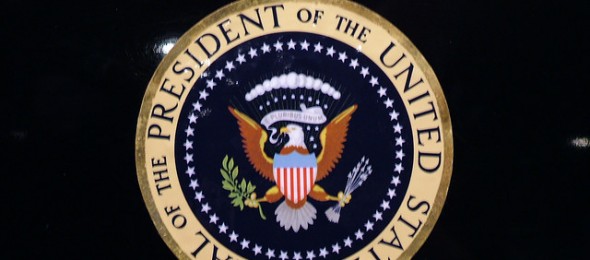On July 31st, President Obama signed the “Fair Pay and Safe Workplaces” Executive Order. As part of the order, federal contractors are now forbidden from using mandatory pre-employment arbitration clauses for employment disputes related to sexual assault, harassment, or workplace discrimination violations.
Here is the relevant provision:
Sec. 6. Complaint and Dispute Transparency. (a) Agencies shall ensure that for all contracts where the estimated value of the supplies acquired and services required exceeds $1 million, provisions in solicitations and clauses in contracts shall provide that contractors agree that the decision to arbitrate claims arising under title VII of the Civil Rights Act of 1964 or any tort related to or arising out of sexual assault or harassment may only be made with the voluntary consent of employees or independent contractors after such disputes arise. Agencies shall also require that contractors incorporate this same requirement into subcontracts where the estimated value of the supplies acquired and services required exceeds $1 million.
(b) Subsection (a) of this section shall not apply to contracts or subcontracts for the acquisition of commercial items or commercially available off-the-shelf items.
(c) A contractor’s or subcontractor’s agreement under subsection (a) of this section to arbitrate certain claims only with the voluntary post-dispute consent of employees or independent contractors shall not apply with respect to:
(i) employees who are covered by any type of collective bargaining agreement negotiated between the contractor and a labor organization representing them; or
(ii) employees or independent contractors who entered into a valid contract to arbitrate prior to the contractor or subcontractor bidding on a contract covered by this order, except that a contractor’s or subcontractor’s agreement under subsection (a) of this section to arbitrate certain claims only with the voluntary post-dispute consent of employees or independent contractors shall apply if the contractor or subcontractor is permitted to change the terms of the contract with the employee or independent contractor, or when the contract is renegotiated or replaced.
According to a White House Office of the Press Secretary Fact Sheet, the provision was designed to:
6. Give Employees a Day in Court: The Executive Order directs companies with federal contracts of $1 million or more not to require their employees to enter into predispute arbitration agreements for disputes arising out of Title VII of the Civil Rights Act or from torts related to sexual assault or harassment (except when valid contracts already exist). This builds on a policy already passed by Congress and successfully implemented at the Department of Defense, the largest federal contracting agency, and will help improve contractors’ compliance with labor laws.
This provision of the Executive Order has reportedly sparked fierce debate over whether or not it exceeds the President’s authority. A June 2011 Congressional Research Service Report entitled “Presidential Authority to Impose Requirements on Federal Contractors” suggests this particular provision may soon face a legal challenge.
Disputing would like to thank Mark Kantor for alerting us to this developing issue. Please stay tuned for more on this fascinating topic in the future!
Photo credit: cletch / Foter / Creative Commons Attribution 2.0 Generic (CC BY 2.0)














